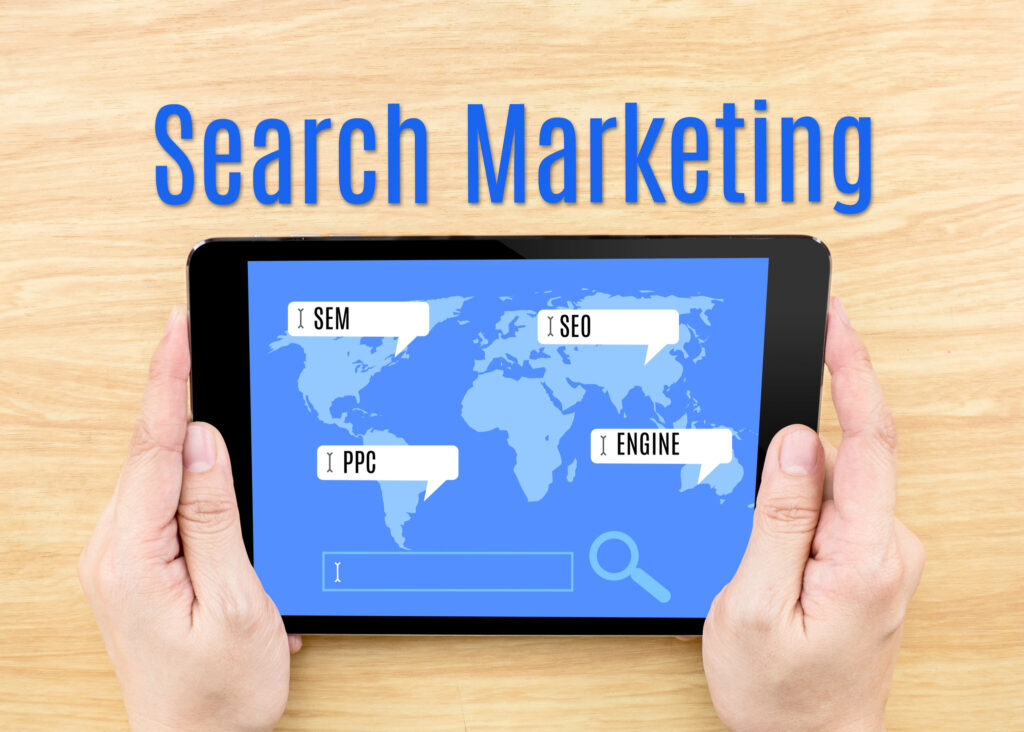If you are new to marketing your products or services online, you have probably heard people speak about things like SEM, SEO and PPC. But, they seldom actually explain what the acronyms signify or why someone interested in online marketing should understand the terms. What follows is a cheat sheet that answers questions you may have about how SEM, SEO and PPC are different, as well as identify the reasons why these terms should matter to you.
First, a Few Definitions
- SEM stands for search engine marketing. This umbrella term covers everything done to ensure strong online performance. SEO and PPC are two aspects of SEM.
- SEO is the acronym for search engine optimization. This refers to the work needed to make a website show up organically in search engine results pages (SERPs) for specific keywords.
- PPC is the shortened version of pay-per-click advertising. This covers any type of paid advertising for individual keywords.
The Main Differences Between SEO & PPC
SEO and PPC are not mutually exclusive. In fact, they are two sides of the same coin; a successful online marketing campaign usually has elements of both. That said, there are some differences to consider.
- Immediacy: SEO takes time. It can be several months before a new website or individual page begins to show up in SERPs, but once it appears, it only gets better. In contrast, PPC campaigns produce results more quickly, but once the PPC budget is exhausted or the campaign stops, only the SEO carries the site.
- Costs: Some people avoid conducting PPC campaigns because of budgetary concerns. Depending on the keywords targeted, the price for an effective PPC campaign can mount up quickly. Money isn’t the only cost concern, however. Structuring effective SEO for a website costs time both to do the optimization and to monitor results. A common strategy is to do both at the beginning of a new website launch and taper off as the site begins to be visible organically in the SERPs.
- Position: SEO results show up in the middle of the first SERP pages, while PPC results appear as sponsored links at the top and bottom of the page.
- Credibility: Some Internet users have trained themselves to ignore PPC results, preferring to look at sites that have matured to rank high organically. However, even if they never click on a PPC link on a SERPs page, simply seeing the link or ad on another page can boost credibility.
How Do I Decide Where to Put My Online Marketing Resources?
Unfortunately, this is an “it depends” kind of question. For example, is your website brand new, or has it been around for a while? Similarly, is your business well-established with a solid customer base, or is it a startup that could benefit from a quick boost? In other words, can you afford to wait for SEO to kick in, or do you need the speedy results that can come from a well-organized PPC campaign? The answer will inform which strategy you pursue first and how much you spend on each. A new site or business could benefit from a targeted PPC campaign to get it started while an older site or long-term business could focus on tweaking the on-site SEO to improve performance over time.
Help Is Available
These considerations are just a few that come into play when deciding on an Internet marketing strategy. Fortunately, you don’t have to do it by yourself. Professional search marketers can help you refine your goals and recommend a strategy that will use your resources to the best possible advantage.


